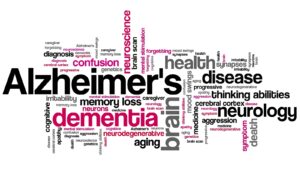Best Diet for Seniors with Dementia
In the case of dementia, the ability to memorize new information and recall previously stored memories is diminished and in advanced stages, the ability vanishes completely. Dementia is mainly an age related and irreversible condition. Over 100 million people and every year 7.7 million new cases of dementia will be registered by the year 2050, per World Health Organisation reports.
In the middle and late stages of dementia it may be a challenge to ensure a regular nutritious meal as the patient may become overwhelmed with too many choices, forget to even eat or even think that they have eaten already. For anyone who has dementia, a nutritional deficit may cause damage like loss of weight and aggravate behavioral symptoms. It is important to keep the patient’s body strong and healthy. This is where personal care at home becomes a good option to ensure a positive routine.
Nutrition guidance
The basic nutrition tips below can help the patient’s health and your health as well:

Personal Care at Home in Long Prairie, MN: Best Diets and Dementia
- Variety of foods: Always try to include a variety of food options like vegetables, fruits, whole grains, low-fat dairy products and lean protein foods.
- Control fat and cholesterol intake: There are fats that are essential for health-but not all fats are as good as others. Start avoiding fats such as butter, solid shortening, lard and fatty cuts of meat.
- Less sugar intake: Reduce the intake of sugars such as juices and processed foods. Any food that contains sugar is a no for the patient. But in the advanced stages of dementia, it may happen that the patient loses their appetite completely, and then sugar intake may encourage eating for them. Otherwise the patient needs to control their cravings for sweets.
- Stay hydrated: From time to time, offer the patient small cups of water or other liquids so that the body remains hydrated. You can also offer foods that are high on water content as an alternative. You need to encourage fluid intake on a regular basis.
Conclusion: Best Diet for Seniors with Dementia
In the case of dementia, as the disease progresses, it is common to lose appetite. In this scenario as loss of weight becomes a concern, the doctor generally is prescribed supplements between meals to fulfill the caloric requirements of the body. If your loved one has such a condition, you may try preparing some of their favorite foods to encourage eating.
However, personal care at home, if implemented, can reduce the chances of this weight loss occurring. Professionals can create a day to day routine according to the patient’s needs and ensure that their calorie intake is met.
If you are interested in learning more about personal care at home, give us a call and review your options today!
If you or an aging loved-one are considering Personal Care at Home in Long Prairie, MN please contact the caring staff at Alternative Senior Care today. Providing Home Care in Central Minnesota and Surrounding Communities. Call us Today (320) 352-3350
Sources:
https://www.ncbi.nlm.nih.gov/pmc/articles/PMC7163056/
https://www.ncbi.nlm.nih.gov/pmc/articles/PMC4849169/
https://www.frontiersin.org/articles/10.3389/fnut.2020.604488/full
- Helping Seniors Manage Tinnitus - May 21, 2025
- Why Are ADLs and IADLs Significant for Seniors? - May 8, 2025
- How Senior Home Care Helps Seniors Live a Fuller Life - April 18, 2025

